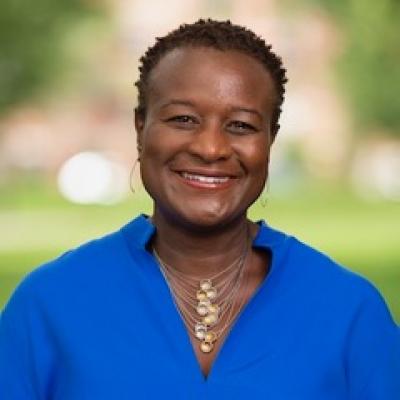
Thursday, April 21, 2022
Noon – 1:30 p.m. (lunch included)
The Faculty Club
Biography
PRUDENCE L. CARTER is Sarah and Joseph Jr. Dowling Professor of Sociology at Brown. From 2016-2021, Carter was E.H. and Mary E. Pardee Professor and Dean of the Graduate School of Education at Berkeley. She is a sociologist whose primary research focuses on explanations of enduring inequalities in education and society and their potential solutions. Specifically, she examines academic and mobility disparities shaped by the effects of race, ethnicity, class, and gender in the United States and global society. Her books include the award-winning Keepin’ It Real: School Success beyond Black and White; Stubborn Roots: Race, Culture, and Inequality in U.S. & South African Schools; and Closing the Opportunity Gap: What America Must Do to Give Every Child an Even Chance, co-edited with Dr. Kevin Welner. Professor Carter is an elected fellow of the National Academy of Education, Sociological Research Association, and the American Education Research Association; and she is the 2021-22 President-elect of the American Sociological Association.
Overview
State legislators have passed laws against the explicit teaching of race-based knowledge and histories in public schools. Epistemological debates ensue within social science disciplines about the foundational texts of the canon. Lawsuits and political contestation persist about the constitutionality of increased access and inclusion of historically excluded social groups. Different shades of immigration motivate political backlash and increased regulations of the territorial boundaries of the United States. For sociologists, conventionally, social mobility and change have demanded the assimilation of historically excluded groups and ideas. But what happens as the doors of opportunities demand further expansion—beyond the established “comfort zone,” when social movements and critical scholarship push the symbolic boundaries for increased social differentiation of the cultural center of institutions and organizations? In this talk I share preliminary, conceptual arguments and findings on perceptions of social cohesion, crises and destabilization, and the meanings of knowledge, as representation and participation evolve in higher education and K-12 schooling.
